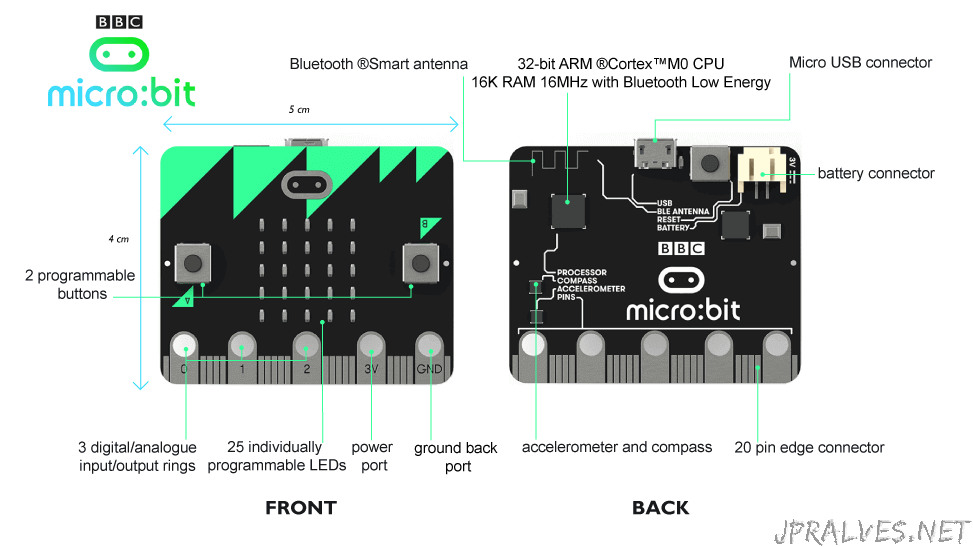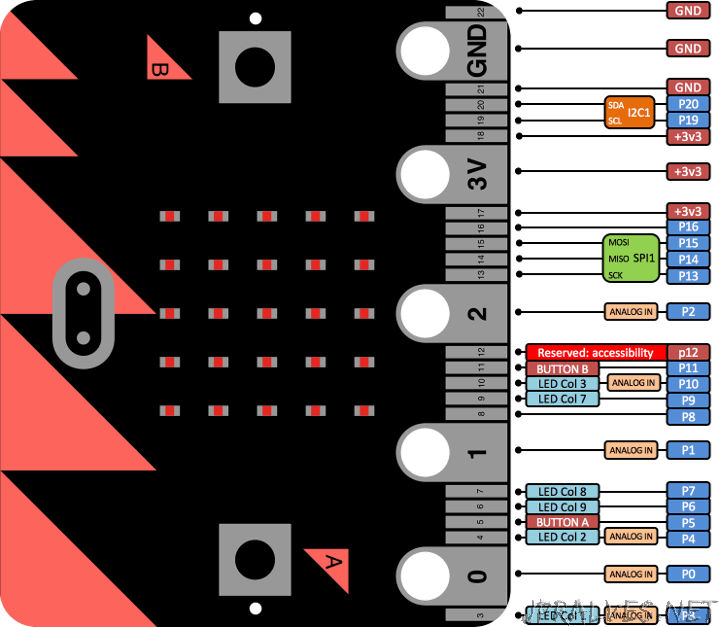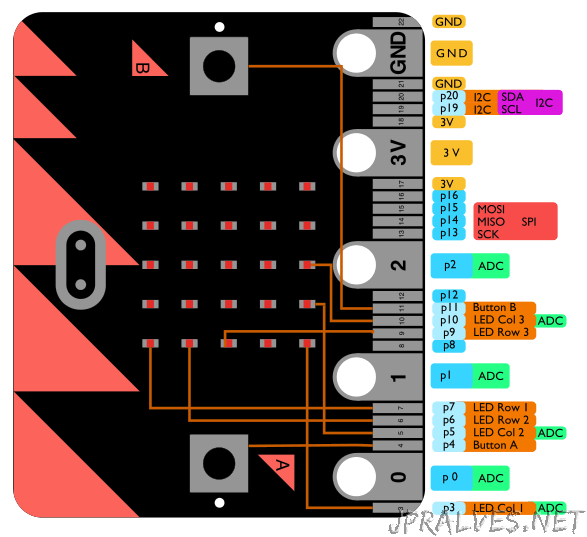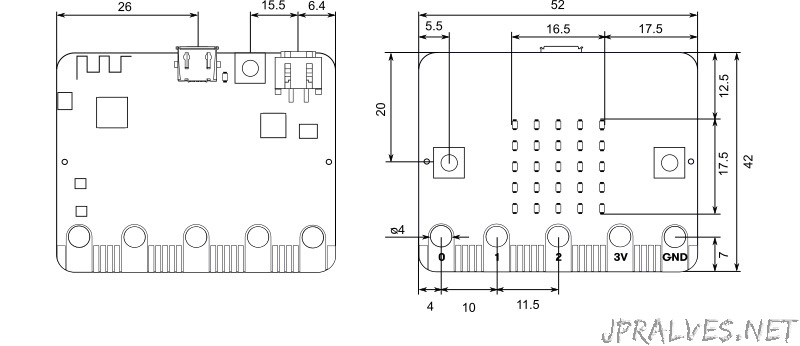The Micro Bit (also referred to as BBC Micro Bit, stylized as micro:bit) is an ARM-based embedded system designed by the BBC for use in computer education in the UK.
BBC Micro:Bit

The board is 4 cm × 5 cm and has an ARM Cortex-M0 processor, accelerometer and magnetometer sensors, Bluetooth and USB connectivity, a display consisting of 25 LEDs, two programmable buttons, and can be powered by either USB or an external battery pack.[2] The device inputs and outputs are through five ring connectors that are part of the 23-pin edge connector.
Specifications
- Nordic nRF51822
- 16 MHz 32-bit ARM Cortex-M0 microcontroller
- 256 KB flash memory
- 16 KB static ram
- 2.4 GHz Bluetooth low energy wireless networking.
- The ARM core has the capability to switch between 16 MHz or 32.768 kHz.
- NXP/Freescale KL26Z
- 48 MHz ARM Cortex-M0+ core microcontroller
- full-speed USB 2.0 On-The-Go (OTG) controller,
- interface between USB and main Nordic microcontroller.
- This device also performs the voltage regulation from the USB supply (4.5-5.25V) down to the nominal 3.3 volts used by the rest of the PCB.
- NXP/Freescale MMA8652 – 3-axis accelerometer sensor via I²C-bus.
- NXP/Freescale MAG3110 – 3-axis magnetometer sensor via I²C-bus (to act as a compass and metal detector).
- MicroUSB connector, battery connector, 23-pin edge connector.
- Display consisting of 25 LEDs in a 5×5 array.
- Three tactile pushbuttons (two for user, one for reset).
PinOut


Dimensions

